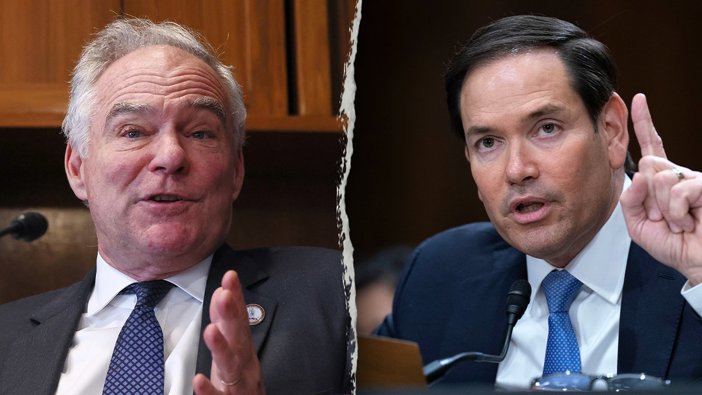
Rubio, Kaine Clash on South African Refugees
Senators Marco Rubio and Tim Kaine clashed over white South African refugee resettlement, raising race and policy concerns.
Senators Battle Over Racial Fairness and Immigration Priorities
Secretary of State Marco Rubio and Senator Tim Kaine engaged in a tense and racially charged exchange on Tuesday during a Senate Foreign Relations Committee hearing regarding the Trump administration’s decision to accept white South African refugees.
Dozens of Afrikaner farmers arrived in the United States last week under a refugee program the State Department says was initiated to protect victims of “government-sponsored racial discrimination” in South Africa. Their entry comes amid broader restrictions on refugee admissions.
Senator Kaine challenged the legitimacy of the persecution claims, noting that South Africa is governed by a coalition that includes Afrikaner parties and that the nation’s agriculture minister is an Afrikaner. He suggested that the administration’s emphasis on Afrikaner refugees was racially motivated.
“Can you have a different standard based upon the color of somebody's skin?” Kaine asked. Rubio swiftly countered, “You don’t like the fact that they’re white and that’s why they’re coming.”
The sharp exchange escalated when Kaine pressed Rubio again, saying, “I’m asking you to say that that would be unacceptable.” Rubio responded, “The United States has a right to pick and choose who they allow into the United States.”
Kaine questioned whether race should be a factor in such decisions. Rubio maintained that the refugees’ farms had been burned and lives lost due to racial targeting, arguing they were persecuted for being white. “You’re the one that’s talking about the color of their skin, not me,” Rubio said.
Trump Policy and Diplomatic Fallout
President Donald Trump had earlier instructed the State Department to prioritize white South Africans after South Africa passed a land redistribution law allowing property seizure without compensation. Trump claimed the law was being used to target the white Afrikaner minority, descended from European settlers.
Kaine countered that the U.S. had never created a similar refugee channel for Black South Africans under apartheid and questioned the consistency of applying the “well-founded fear of persecution” standard.
“Would you agree that we should apply that standard evenhandedly?” Kaine asked. Rubio responded, “Our foreign policy does not require evenhandedness.” He added that refugee admissions should reflect the national security interests of the United States.
Rubio further accused Kaine of believing the U.S. should admit anyone, regardless of national interest, emphasizing that immigration must benefit the country strategically.
In a related diplomatic move, Rubio expelled South Africa’s ambassador to the U.S. in March, calling him a “race-baiting” official after the ambassador accused Trump of promoting white supremacy globally. South Africa’s foreign ministry has dismissed the claims of racial persecution against Afrikaners as “unfounded.”
Agency Reform and Foreign Policy Vision
During the hearing, Rubio also unveiled a proposal to restructure the State Department’s budget, requesting $28.5 billion while proposing $20 billion in cuts to overlapping or ideological programs. He announced plans to consolidate U.S. Agency for International Development (USAID) functions and shut down over 130 offices worldwide.
“This is not about dismantling foreign policy,” Rubio said. “We are engaged in the world, but we’re going to be engaged in a way that makes sense and serves the American people.”
He also addressed the Ukraine-Russia conflict, stating that “neither side can win militarily” and that a negotiated peace is the only viable solution.






